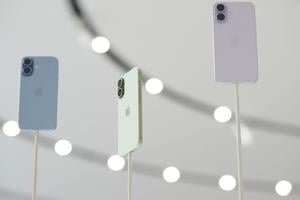The latest update from Apple has introduced a new call screening feature for iPhone users, aimed at tackling the growing problem of nuisance phone calls. The feature, part of the iOS 26 update released in October 2023, allows users to filter calls from unknown numbers, providing a much-needed solution to the rising tide of robocalls and spam.
To enable this feature, users must update their devices to iOS 26, which is compatible with the iPhone 11 and newer models. Once the update is installed, users can navigate to Settings, then Apps, and select Phone. Here, they will find a new option called Screen Unknown Callers. This feature presents three settings: “Never,” which allows all unknown calls to ring through; “Silence,” which sends unidentified numbers directly to voicemail; and the critical middle option, “Ask Reason for Calling.” If the option does not appear immediately, restarting the device may resolve the issue. Some users have reported needing to adjust their region and language settings to access the feature effectively.
Once activated, the call screening function acts as a virtual gatekeeper. When an unknown caller dials in, a voice resembling Siri prompts them to state their name and the purpose of their call. Simultaneously, the recipient receives a notification that the call is being screened. The caller’s responses are transcribed and displayed on the screen, allowing users to decide whether to answer or not. For those who prefer to avoid answering, there are pre-written responses available, such as “I’ll call you later” or “Send more information,” which the AI voice can relay to the caller.
Although the call screening feature offers a balanced approach between silencing all unknown callers and allowing them through, user experiences vary. Some have praised its effectiveness in filtering out unwanted calls from telemarketers, while others have encountered issues with legitimate calls being missed. One user noted, “It’s not great when delivery drivers try to call me and then just hang up,” highlighting the potential for important calls to be overlooked.
Feedback gathered from users suggests that the feature may inadvertently lead to confusion. For instance, one individual reported an unknown caller mistakenly giving their name instead of asking for theirs, leading them to believe they were familiar with the caller. This resulted in an unexpected survey solicitation.
If users find the feature unhelpful, it can be disabled at any time. With this update, Apple is catching up to its competitor, Google, which has offered similar call screening capabilities for its Pixel users since 2019. Recently, Google announced it is extending this feature to additional countries, including Australia, Canada, and Ireland.
Samsung also provides call screening for its Galaxy Android phones through its AI assistant, Bixby, which functions similarly. Both Google and Samsung emphasize that while their systems aim to detect spam calls, they may not be foolproof and can occasionally misidentify legitimate calls.
The introduction of call screening represents a significant step by Apple in addressing consumer concerns about unsolicited calls. As spam calls continue to rise globally, features like these play a crucial role in enhancing user experience and providing peace of mind.





































































